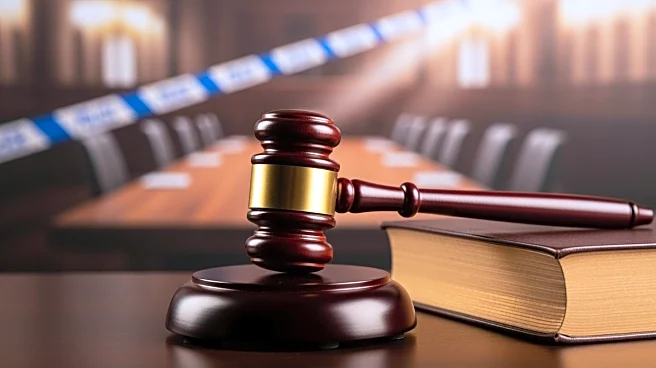What is the story about?
What's Happening?
President Trump has signed an executive order aimed at punishing individuals who burn the American flag. This action reflects his administration's stance on protecting national symbols and addressing acts considered disrespectful to the country. The executive order seeks to impose penalties on those who engage in flag burning, a move that has sparked discussions about freedom of expression and constitutional rights. Jeffrey Rosen, president and CEO of the National Constitution Center, has provided insights into the implications of this order during an interview with NPR's Steve Inskeep.
Why It's Important?
The executive order signed by President Trump is significant as it touches on the balance between national pride and freedom of expression. Flag burning has long been a controversial issue, with debates surrounding its legality and ethical implications. This order could lead to legal challenges and discussions about the First Amendment rights of individuals. It highlights the ongoing tension between government actions and individual liberties, potentially influencing public policy and societal norms regarding patriotic symbols.
What's Next?
The executive order may face legal scrutiny and challenges from civil rights groups advocating for freedom of expression. Courts could be involved in determining the constitutionality of penalizing flag burning, setting precedents for similar cases in the future. Political leaders and advocacy groups may engage in debates over the implications of this order, influencing public opinion and legislative actions. The broader impact on U.S. society will depend on how these discussions unfold and the legal interpretations that emerge.

















